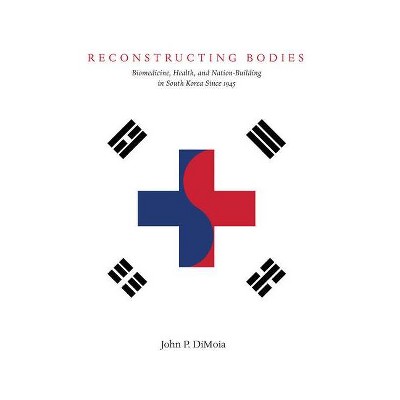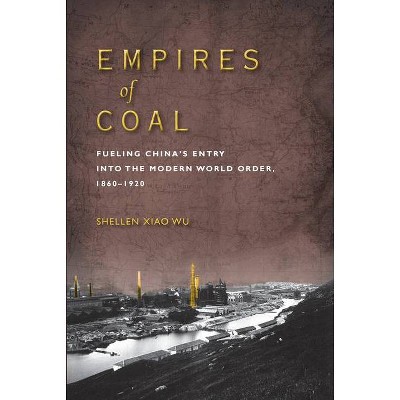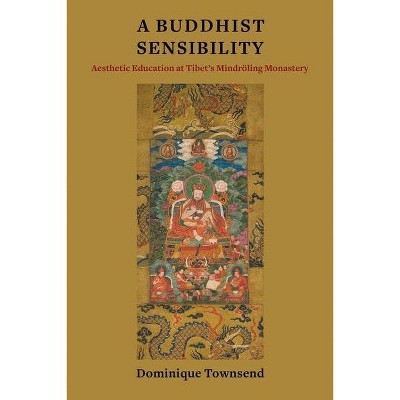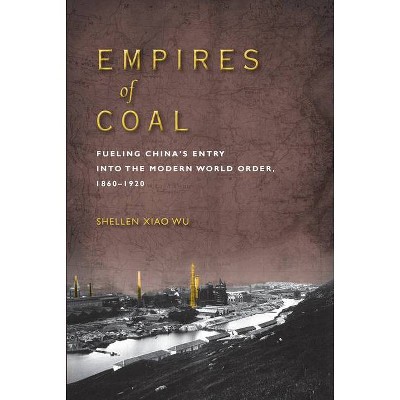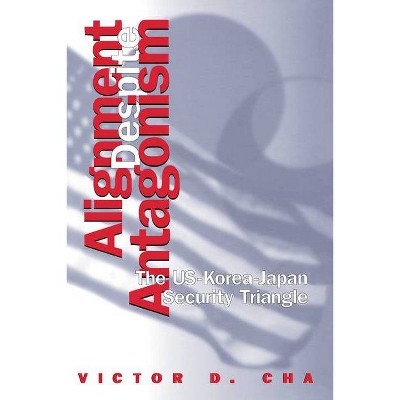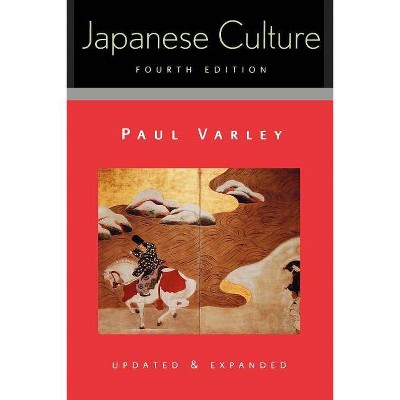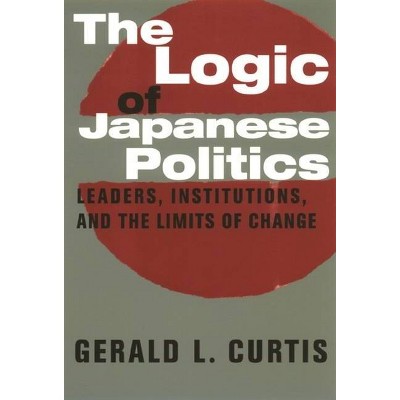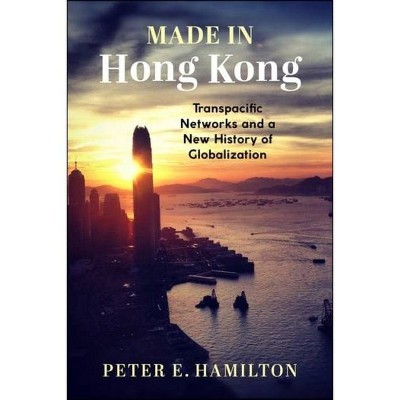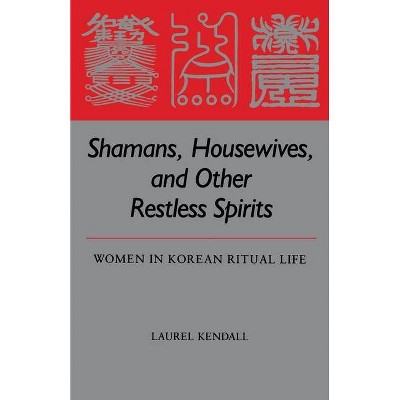Vernacular Industrialism in China - (Studies of the Weatherhead East Asian Institute, Columbia Un) by Eugenia Lean (Hardcover)
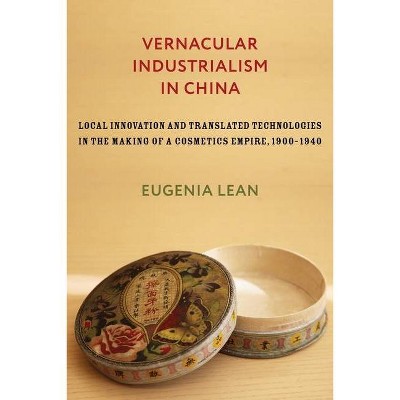
Similar Products
Products of same category from the store
AllProduct info
<p/><br></br><p><b> About the Book </b></p></br></br>"In early twentieth-century China, Chen Diexian (1879-1940) was a maverick entrepreneur-at once a prolific man of letters and captain of industry, a magazine editor and cosmetics magnate. He tinkered with chemistry in his private studio, used local cuttlefish to source magnesium carbonate, and published manufacturing tips in how-to columns. In a rapidly changing society, Chen copied foreign technologies and translated manufacturing processes from abroad to produce adaptations of global commodities that outcompeted foreign brands. Engaging in the worlds of journalism, industry, and commerce, he drew on literati practices associated with late-imperial elites, but deployed them in novel ways within a culture of educated tinkering that generated industrial innovation. Through the lens of Chen's career, Eugenia Lean explores how unlikely individuals devised unconventional, homegrown approaches to industry and science in early twentieth-century China. She contends that Chen's activities exemplify "vernacular industrialism," the pursuit of industry and science outside of conventional venues, often involving ad hoc forms of knowledge and material work. Lean shows how vernacular industrialists accessed worldwide circuits of law and science and experimented with local and global processes of manufacturing to navigate, innovate, and compete in global capitalism. In doing so, they presaged the approach that has helped fuel China's economic ascent in the twenty-first century. Moving away from conventional narratives that depict China as belatedly borrowing from Western technology, Vernacular Industrialism in China offers a new understanding of industrialization, going beyond material factors to show the central role of culture and knowledge production in technological and industrial change"--<p/><br></br><p><b> Book Synopsis </b></p></br></br><p>In early twentieth-century China, Chen Diexian (1879-1940) was a maverick entrepreneur--at once a prolific man of letters and captain of industry, a magazine editor and cosmetics magnate. He tinkered with chemistry in his private studio, used local cuttlefish to source magnesium carbonate, and published manufacturing tips in how-to columns. In a rapidly changing society, Chen copied foreign technologies and translated manufacturing processes from abroad to produce adaptations of global commodities that bested foreign brands. Engaging in the worlds of journalism, industry, and commerce, he drew on literati practices associated with late-imperial elites but deployed them in novel ways within a culture of educated tinkering that generated industrial innovation.</p><p>Through the lens of Chen's career, Eugenia Lean explores how unlikely individuals devised unconventional, homegrown approaches to industry and science in early twentieth-century China. She contends that Chen's activities exemplify "vernacular industrialism," the pursuit of industry and science outside of conventional venues, often involving ad hoc forms of knowledge and material work. Lean shows how vernacular industrialists accessed worldwide circuits of law and science and experimented with local and global processes of manufacturing to navigate, innovate, and compete in global capitalism. In doing so, they presaged the approach that has helped fuel China's economic ascent in the twenty-first century. Rather than conventional narratives that depict China as belatedly borrowing from Western technology, <em>Vernacular Industrialism in China</em> offers a new understanding of industrialization, going beyond material factors to show the central role of culture and knowledge production in technological and industrial change.</p><p/><br></br><p><b> Review Quotes </b></p></br></br><br>Thoroughly researched and elegantly crafted . . . [this book] sheds fresh light on early twentieth-century China at a time when the nation was just entering global capitalism.--Journal of Chinese History<br><br><i>Vernacular Industrialism in China</i> is an astonishingly rich and original microhistory. In telling the fascinating story of Chen Diexian, Lean challenges us to rethink large swaths of modern Chinese history. An outstanding achievement of wit, erudition, and insight.--Fa-ti Fan, author of <i>British Naturalists in Qing China: Science, Empire, and Cultural Encounter</i><br><br>This pathbreaking book conclusively demonstrates that the values and habits of classically trained Chinese literati, so scorned by May Fourth modernizers, were fully reconcilable with modern science and technology. Eugenia Lean's "vernacular industrialism" will be a touchstone for all future work on the history of science and technology in China.--Sigrid Schmalzer, author of <i>Red Revolution, Green Revolution: Scientific Farming in Socialist China</i><br><br>Eugenia Lean has written an engrossing study of how popular industrialism arose in early twentieth-century China. Chen Diexian emerges from its pages as both representative and remarkable: an amateur scientist and literary celebrity turned serial entrepreneur, consumer products magnate, and do-it-yourself modernist. Through Chen's career, <i>Vernacular Industrialism in China</i> traces a fascinating history of everyday innovations.--Christopher Rea, author of <i>The Age of Irreverence: A New History of Laughter in China</i><br><p/><br></br><p><b> About the Author </b></p></br></br>Eugenia Lean is professor of history and East Asian languages and cultures and current director of the Weatherhead East Asian Institute at Columbia University. She is the author of <i>Public Passions: The Trial of Shi Jianqiao and the Rise of Popular Sympathy in Republican China</i> (2007).
Price History
Cheapest price in the interval: 65.99 on November 8, 2021
Most expensive price in the interval: 65.99 on December 20, 2021
Price Archive shows prices from various stores, lets you see history and find the cheapest. There is no actual sale on the website. For all support, inquiry and suggestion messages communication@pricearchive.us

